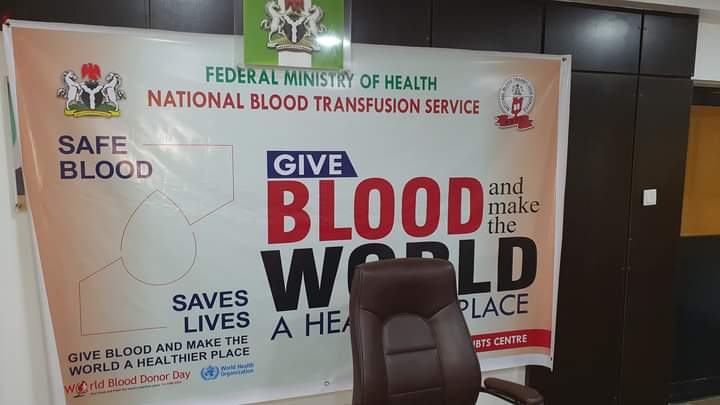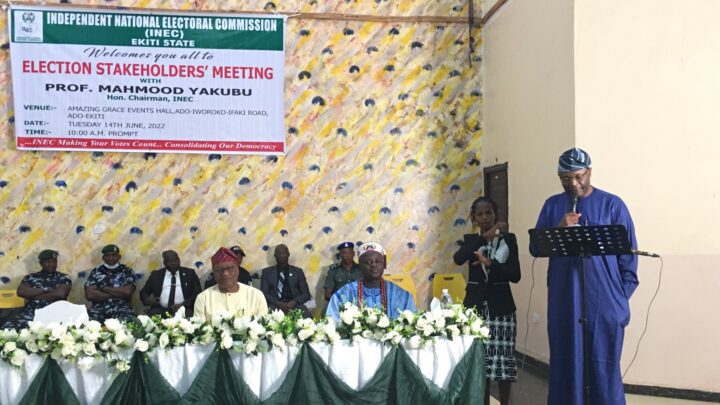Despite sensitisation and advocacy, Nigeria still hasn’t met the required global health standards on the culture of voluntary blood donation.
Blood donation is an important aspect of healthcare worldwide. Blood donated or voluntarily collected is used as a life-sustaining or life-saving procedure in terms of offering intervention when required.
In Nigeria, voluntarily blood donation cam be said to have recorded minimal success, owing to various factors related to people’s attitude or myths around the process.
According to the National Blood Service Commission (NBSC), the country has only collected 25,000 blood units in 2022, which is still a far cry from its target of reaching one million by 2023, and three million by 2030.
Advertisement
This means that a steady supply of blood donation is needed to close the gap and save more lives. Data from the World Health Organisation also states that Nigeria needs an average of 1.8 million units of blood every year to save souls and provide good health to citizens.
BENEFITS OF BLOOD DONATION
In a statement on Tuesday to commemorate the World Blood Donor Day, Matshidiso Moeti, WHO regional director for Africa, said Africa has, over the years, experienced a number of conditions that needed blood donors.
Advertisement
She added that the situation has affected about seven million patients every year.
In an interiew with TheCable on Tuesday, Bankole Olusegun, head of department, family medicine, Alimosho General Hospital in Lagos, said blood donation is a life-saving activity that requires the significant input of volunteers.
“There are lots of benefits of donating blood. Apart from the process of blood donation itself, it makes you aware of your health status,” he said.
“When you go to the blood bank or the donation station, the first thing they will do for you is to check your health status. They will check your blood pressure, polychlorinated biphenyls (PCB), Human Immune Virus (HIV) status, hepatitis B, hepatitis C to ensure physically wellness.
Advertisement
“The donor will be asked to seek necessary treatment if diagnosed with hypertension, high blood pressure or low PCB.
“There are so many other benefits when a person donates blood regularly. It reduces the chances of circulatory overloads. When a person has excessive blood in their system, it overloads the heart. When blood is routinely withdrawn from the system, it reduces the viscosity of the blood and reduces the circulatory overloads and the work rate of the heart.
“It reduces weight, helps the bone marrow to function properly, exercises the bone marrow and makes them produce more new blood cells.
“It is a lifesaving activity. The blood donated or collected is put in the blood bank for patients who need to be transfused with blood. Patients who lose blood massively, such as cases of road traffic accident, bomb blast, terrorist attack, any accident that leads to acute loss of blood, require blood transfusion to keep them alive.
Advertisement
“In cases of pregnant women, some deliver and lose blood in the process — postpartum haemorrhage. Blood ought to be in the blood bank to access. Even people undergoing gynaecology surgery, orthopaedic surgery and post anaemia patients require blood.”
WHO CAN DONATE BLOOD?
Advertisement
According to Olusegun, it is important to consider the donor’s physical or medical status and age before withdrawing blood for transfusion.
“If a donor is not medically or physically fit, it has dangers. The person who is donating blood for another person must be fit. Anybody can donate blood, whether man or woman. Any adult from the age of 15 upwards, whether male or female, can donate blood,” he said.
Advertisement
“If a person has PCB of about 20 percent or less than 30 percent, that person can collapse and their blood would have to be returned to their system.
“Nowadays, ethically, there is what we call voluntary donation. Nobody should be compelled to donate blood.”
Advertisement
CHALLENGES OF BLOOD DONATION
According to the physician at Alimosho hospital, there is low awareness on the benefits of blood donation in Nigeria.
He said there is a need to “maintain viable and functional blood banks all over health facilities in the country”, adding that Nigerians need to be aware of how important it is to participate in voluntary blood donation.
“One of the commonest myths around blood donation in Nigeria is that a woman cannot donate blood. Whether you are a man or a woman, when you meet all the criteria, you can donate blood,” Olusegun said.
“Some people believe that people donate blood so that witches and wizards can drink. That is not true. Some people run away from blood donation because of that. As long as the blood is going into a proper blood bank, it is important to donate blood.”
‘I DONATED BLOOD TO SAVE A 13-YEAR-OLD’
Nigerians who have participated in voluntary blood donation shared their experiences with TheCable.
Abdulrahman Mohammed, a resident of Niger state, said he donated blood to show his support for humanitarian activities in the country.
He added that when a non-profit organisation visited his school with some health workers in 2012, he was among the students who donated blood.
“I know that hospitals are usually in need of blood. The long queues at the health centres usually discourage many of us from donating blood, but that organisation made it easy for most of us who wanted to help in saving a soul,” he said.
For Ezekiel Udoh, a graduate of Usmanu Danfodiyo University, Sokoto, he had to donate blood to save his friend’s 13-year-old child.
“My friend called me to ask for my help. I had to donate my blood for his child even though I was very scared of the process,” he said.
“It was not a good experience as I collapsed after the withdrawal, but I am happy I was able to save a soul.”
Add a comment






